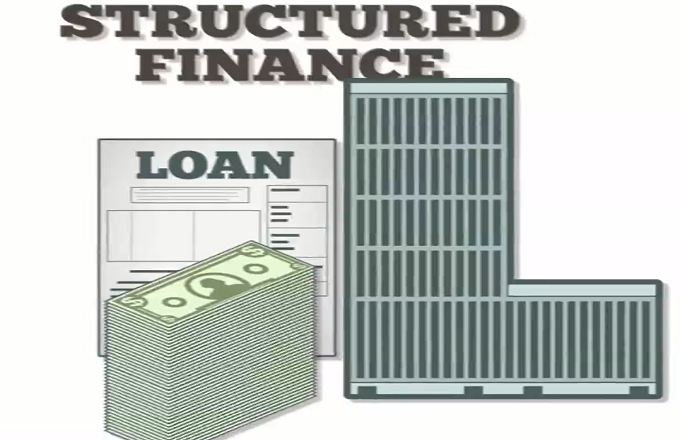Americans do not currently need a passport to travel to numerous Caribbean islands. For instance, in 2005, https://knoxadvk872.skyrock.com/3347194346-The-10-Minute-Rule-for-What-Is-The-Difference-Between-Lease-And.html some 50% of Americans taking a trip to Jamaica did not have a passport. Caribbean governments also argue that a majority of tourism revenues are derived jessica and company from travelers showing up by air and keep that the recent modifications in U. How to finance an engagement ring.S. law attending to a different due date for sea travel was done to calm cruise liner carriers. A controversial issue in U.S. relations with the Caribbean has been a World Trade Company (WTO) complaint filed by Antigua and Barbuda challenging U.S. constraints on cross-border Web betting. Antigua, which has purchased Internet gambling as a way of diversifying its economy, keeps that it has actually lost countless dollars because of the U.S.
In July 2006, the WTO developed a disagreement resolution panel to figure out whether the United States had complied with a 2005 WTO ruling that backed Antigua's claim that the U.S. limitations breach the United States' market gain access to commitments under the WTO's General Contract on Sell Solutions (GATS). Antigua keeps that the United States has actually taken no action to abide by the previous ruling. In September 2006, Congress authorized legislation to split down on illegal Internet gambling (P.L. 109-347, Title VIII, H.R. 4954). CARICOM officials have actually expressed issues about the U.S. inactiveness in the WTO case and informed U.S. officials that they consider it a local Caribbean concern with the United States rather than simply a U.S.
( For more, see CRS Report RL32014, WTO Dispute Settlement: Status of U.S. Compliance in Pending Cases, by [author name scrubbed] and CRS Report RS22418, Internet Gambling: Two Methods in the 109th Congress, by [author name scrubbed]) U.S. relations with Haiti were strained under the federal government of Jean Bertrand Aristide since of concerns over corruption and human rights, but there has actually been renewed cooperation with Haiti, initially under the interim government that took office in February 2004, and more just recently under the newly chosen federal government of President Rene Preval inaugurated in May 2006. The Administration is hoping that a chosen government will support the development of operating institutions and infrastructure and a decrease in violence that will help recognize such as objectives as enhancing the human rights circumstance, lowering hardship, and decreasing narcotics trafficking.
policy towards Haiti. (For even more on U.S. policy toward Haiti, see CRS Report RL32294, Haiti: Advancement and U.S. Policy Given That 1991 and Present Congressional Concerns, and CRS Report RL33156, Haiti: International Assistance Method for the Interim Federal Government and Congressional Concerns, both by [author name scrubbed]; and CRS Report RS21349, U.S. Migration Policy on Haitian Migrants, by [author name scrubbed]) Considering that the early 1960s, U.S. policy toward Cuba has actually consisted mostly of separating the island country through financial sanctions, including a trade embargo. The Bush Administration has basically continued this policy, although it has even more tightened economic sanctions, specifically on travel.
What Is A Swap In Finance Fundamentals Explained
policy includes support steps for the Cuban individuals, consisting of private humanitarian donations, U.S.-sponsored radio and television broadcasting to Cuba, and U.S. funding to support democracy and human rights. U.S. wfg watch migration policy towards Cuban migrants has actually been referred to as a "damp foot/dry foot policy," with the U.S. Coast Guard interdicting Cuban migrants at sea and returning them to Cuba, while those Cubans who reach coast are generally enabled to make an application for long-term resident status. (For further info on policy toward Cuba, see CRS Report RL32730, Cuba: Concerns for the 109th Congress; CRS Report RL33622, Cuba's Future Political Situations and U.S.
Limitations on Travel and Remittances; all three by [author name scrubbed]; and CRS Report RS20468, Cuban Migration Policy and Issues, by [author name scrubbed]) The United States has actually provided considerable amounts of foreign assistance to the Caribbean over the previous 25 years. U.S. support to the region in the 1980s amounted to about $3. 2 billion, with the majority of concentrated in Jamaica, the Dominican Republic, and Haiti. A help program for the Eastern Caribbean likewise supplied substantial assistance, particularly in the aftermath of the 1983 U.S - What does ach stand for in finance.-led military intervention in Grenada. In the 1990s, U.S. support to Caribbean countries decreased to about $2 billion, or an annual average of $205 million.
1 billion in help or 54% of the overall. Jamaica was the second biggest U.S. help recipient in the 1990s, getting about $507 million, almost 25% of the overall, while the Dominican Republic got about $352 million, about 17% of the overall. Eastern Caribbean nations received about $178 million in help, nearly 9% of the total. The bulk of U.S. support was financial assistance, consisting of Advancement Assistance, Economic Support Funds, and P.L. 480 food help. Military help to the area amounted to less than $60 million during the 1990s. Since FY2000, U.S. help to the Caribbean region (consisting of FY2006 aid estimates) has amounted to nearly $1.
Haiti represented some 51% of assistance to the Caribbean area during this duration. As in the 1990s, the bulk of assistance to the region included financial help. With regard to hurricane disaster assistance, Congress appropriated $100 million in October 2004 in emergency situation support for Caribbean nations (P.L. 108-324), with $42 million for Grenada, $38 million for Haiti, $18 million for Jamaica, and $2 million for other countries impacted by the storms. Overall support to the Caribbean totaled up to $393 million in FY2005 and an approximated $306 million in FY2006 (see ). What is a consumer finance account. For FY2007, the Administration has actually requested about $322 million in assistance for the Caribbean, with about $198 million or almost 62% of the overall for Haiti, $35 million for the Dominican Republic, $31 million for Guyana, and nearly $17 million for Jamaica.
What Was The Reconstruction Finance Corporation for Dummies

Kitts and Nevis, St. Lucia, and St. Vincent and the Grenadines) is offered through USAID's Caribbean Regional program, which also moneys some region-wide projects; for FY2007, the Administration asked for $11. 6 million for the program. The Eastern Caribbean would likewise get about $1. 5 million in military assistance and $3. 2 million to support a Peace Corps existence. The demand of $3 million for the "3rd Border Effort" (TBI) would fund local tasks for the 14-nation Caribbean Community (CARICOM) plus the Dominican Republic that concentrate on enhancing travel and border security in the area, disaster preparedness, and higher organization competitiveness.

( See ). Expecting future years, a number of Caribbean countries are prospective receivers for Centuries Challenge Account (MCA) support, an initiative to target foreign help to nations with strong records of performance in the locations of governance, economic policy, and financial investment in people. Although Haiti and Guyana have actually been candidate countries potentially eligible for MCA funds because FY2004 (due to the fact that of low per capita income levels), neither nation has been authorized to take part in the program because they have not met MCA efficiency criteria. Guyana, however, was designated an MCA threshold country for FY2005 and FY2006 and could be approved in future years for MCA funding.